Description
CONTENTS
Chapter I: Nature of Dialogue
Theme I: The Concept of Dialogue
- Lexical Meaning of Hiwar
- Hiwar (Dialogue) as a Terminology
- Definitions of Some other Relevant Terms
- Al-Munazarah
Theme II: Legitimacy of Hiwar (Dialogue)
Theme III: Ethics and Decorum of Dialogue
Theme IV: Rules and Regulations of Dialogue
Chapter II: Concept of National Unity & Its Impact
Theme I: Definition of National Unity
Theme II: Elements of National Unity
Theme III: The Effects of National Unity
Chapter III: Impact of Dialogue on Promoting National Unity
Theme I:
Topic I: The Comprehensive Nature of Shari’ah and Its Sovereignty
Topic II: Shari’ah’s Position on National Unity
Theme II: The Importance of Al-Wilayah Al-Shara’iyyah (Legal Guardianship)
Theme III: Obligation of Obedience to the Amir or Ruler
Theme IV: Disagreement amongst People is a Cosmic Law
Theme V: Multiplicity of Religions and Sects in a Muslim State
Theme VI: The Necessity of Inter-Faith Dialogue and Its Impact on Promoting National Unity
Theme VII: The Effect of Dialogue through social media on Promoting National Unity
ABOUT THE BOOK
In 1992 Harvard University Political Science Professor Samuel Huntington wrote an article in the famous U.S. magazine Foreign Affairs which created a great stir. He argued in this article that in the coming years, international wars will be based on “Clash of Civilizations” instead of ideologies. His most important “discovery” in this regard was that the major future clash would be between Islamic and Western civilizations. He also said that there was no space for reconciliation between these two great civilizations and that this clash was inevitable.
Bernard Lewis, a well-know Middle East historian of Princeton University, had expressed similar views in the past. Rather, he was advocating for a long time the views that Islamic and Western civilizations have nothing in common and Islam was clearly against everything that carried any political, social, economic and cultural value in the West.
This was the intellectual context in which in the 1990s, and especially the 9/11 incident, created an environment in which World War III was no longer seen as a fantasy. One popular writer in the west was convinced that the West and the Islamic World were preparing to eradicate each other. In this situation there were some voices based on moderation and reconciliation, willing to give an alternative, better future to their coming generations based on peaceful co- existence. These were the people who stressed the importance of dialogue and mutual understanding rather than clashes, wars, invasions, violence, terrorism, mistrust and mutual suspicions. They paved a way for mutual understanding and cooperation for common values shared by all people and a better future for humanity instead of clash of civilizations.
This book by Dr. Ahmad Yousif Al-Draiweesh is an excellent representative of this approach. Dr. Draiweesh does not deny the fact that humanity is divided in different religions, schools of thought, regions, tribes, languages and cultures, and even today when there is a great excitement for globalization and internationalization, the world is still divided by languages, races, nationalities, religions and cultures. However, after accepting and recognizing the reality of the differences, Dr. Draiweesh, through his reading of the Quran, the teachings of Sunnah and on the basis of rational arguments, shows that believers of different religions and citizens of different nations and civilizations can cooperate with each other and can walk to together on the path of goodwill and cooperation. According to Dr. Draiweesh, ideological and cultural differences must not necessarily result in conflicts and wars. Rather, understanding their differences in their cultural perspectives and accepting them, and devising a framework which could lead us all towards cooperation in matters of common good and piety is the way out. In the view of Dr. Draiweesh, this is the path endorsed by the Holy Quran and the guidance which we receive from our Prophet (Peace be Upon Him). And it is this way through which Muslims can spread the message of Islam in the world with wisdom and for the betterment of humanity. It is a fact that neither the West can control the Muslim World through war and power, nor we Muslims can spread the message of Islam through extremism, violence and war. Based on authentic sources of Islam, drawing on the evidences from Islamic history, and keeping in view the prevailing situation of the Islamic World, Dr. Draiweesh shows that the real strength of Islam is in its universal message and its spiritual, moral and social values, not in the activities of extremism and violence.
The message that Dr. Draiweesh wants to convey about the relationships between Muslim and non-Muslim societies is the same for sectarian differences between Muslims. He argues forcefully that there is no difference in the basic creed between different schools and sects of Muslims. Differences in secondary and juristic aspects are a natural phenomenon and we don’t have to worry about it. Secondary and juristic differences do not mean falsifying each other and separating insects; rather, they reflect broad consensus and it should not make any difference in the unity of Ummah.
This is the moderate voice which promises a better relationship with non-Muslim societies and cultures. Considers secondary and juristic differences a blessing maintaining the unity of the Islamic Ummah. At the conclusion of his book, Dr. Ahmad Yousif Draiweesh has also mentioned the efforts of the Kingdom of Saudi Arabia and the Custodian of the Two Holy Mosques King Abdullah bin Abdul Aziz in promoting dialogue. Cooperation, mutual understanding and goodwill among faith and cultures. Since Saudi Arabia holds a central position in the Muslim world, therefore, the impact of the efforts of King Abdullah bin Abdul Aziz can be seen in other Muslim countries as well. The continued efforts of Saudi Arabia for the last 15 years in interfaith dialogue and through organizations established for this purpose have now transformed into a global movement. While the negative consequences of extremism, violence and militancy should not be underestimated, Dr. Ahmad Yousif al-Draiweesh’s effort is an important service that can save us from swinging from one extreme to another and calls us to the path of moderation, wisdom and peaceful coexistence. During the past two decades, I have participated in conferences and seminars in dozens of countries in the East and West on the subject of Interfaith Dialogue and have read numerous books and articles written on this subject. In my opinion the distinguishing feature of this book by Dr. Ahmad Yousif Al-Draiweesh is that all the relevant issues concerning the centrality of this discourse are brought altogether with solid evidences and arguments from the Holy Quran and Sunnah and Islamic traditions in an accessible manner.
ABOUT THE AUTHOR:
Prof. Dr. Ahmad Yousif Ahmad Al-Draiweesh is working as the President of International Islamic University, Islamabad. he is a famous professor of Islamic Law and Jurisprudence. Prior to joining IIU he served at various prestigious positions such as Deputy Rector and Senior Advisor to the Rector at Al-Imam Muhammad bin Saud Islamic University, Riyadh. He also served as member of various committees, boards and organizations in the Kingdom of Saudi Arabia and Abroad. He is author of several dozen books and articles. Dr. Al-Draiweesh has been most productive in exploring new methodologies of the application of traditional juristic (fiqhi) rulings to the often-complex issues of modern times such as citizenship, political obligations, prisoners’ rights, public finance, religious endowments, water preservation and environmental protection. With his longstanding and rich experience as a university professor and his articulation of the most cherished values of Islam, Dr. Al-Draiweesh is regarded most highly by his peers. Dr. Al-Draiweesh envisions a future of inter-civilizational dialogue and a peaceful co-existence among the followers of different faiths. In this context, his contribution towards building bridges o9f understanding, harmony and tolerance among different schools of Islamic thoughts has also been appreciated. He is winner of many prestigious academic national and international awards. Recently he has been awarded Tamgha-e-Imtiaz by the President of Islamic Republic of Pakistan.
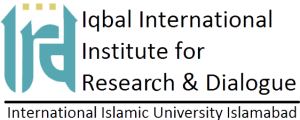
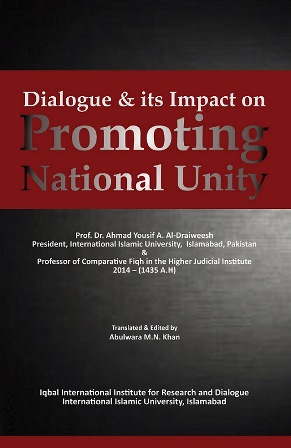
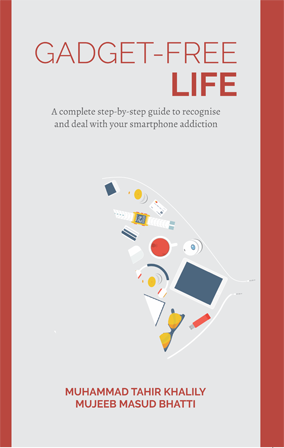
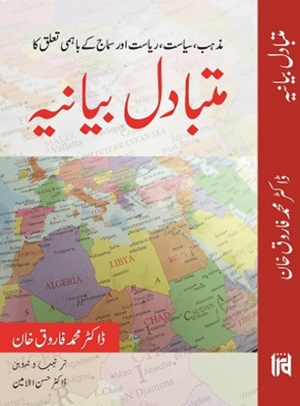
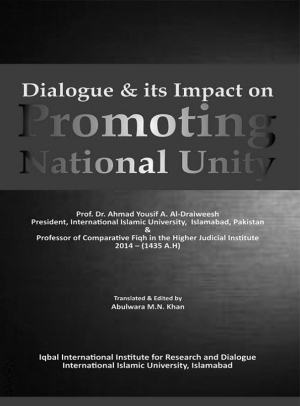
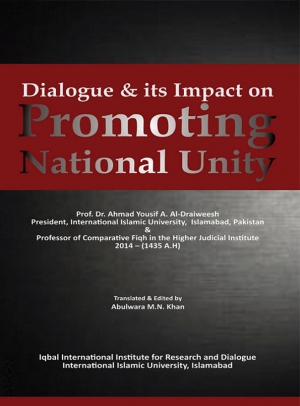
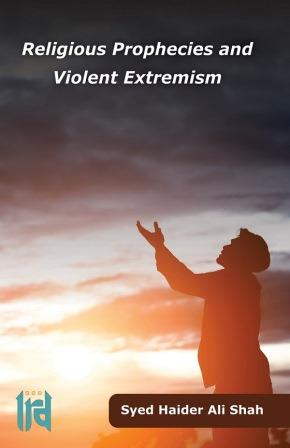

Reviews
There are no reviews yet.